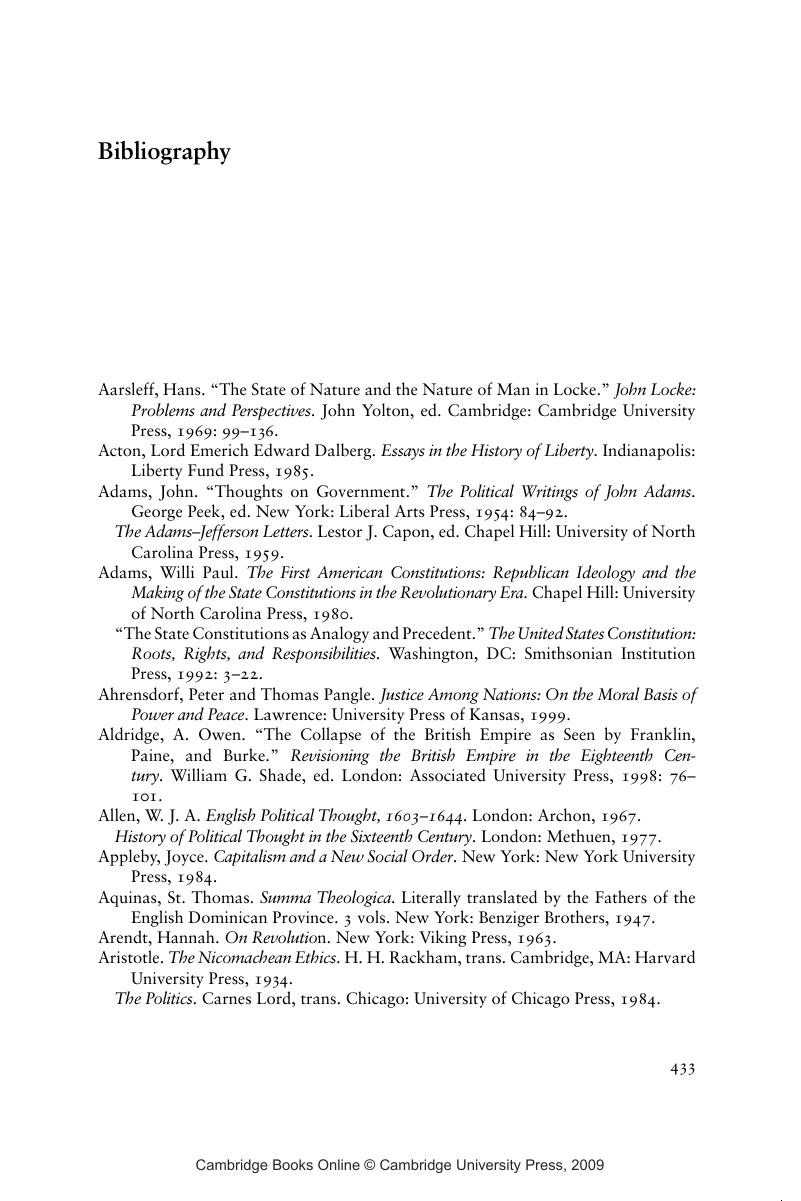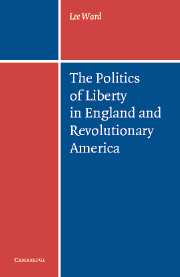Book contents
Bibliography
Published online by Cambridge University Press: 28 October 2009
Summary

- Type
- Chapter
- Information
- The Politics of Liberty in England and Revolutionary America , pp. 433 - 450Publisher: Cambridge University PressPrint publication year: 2004



